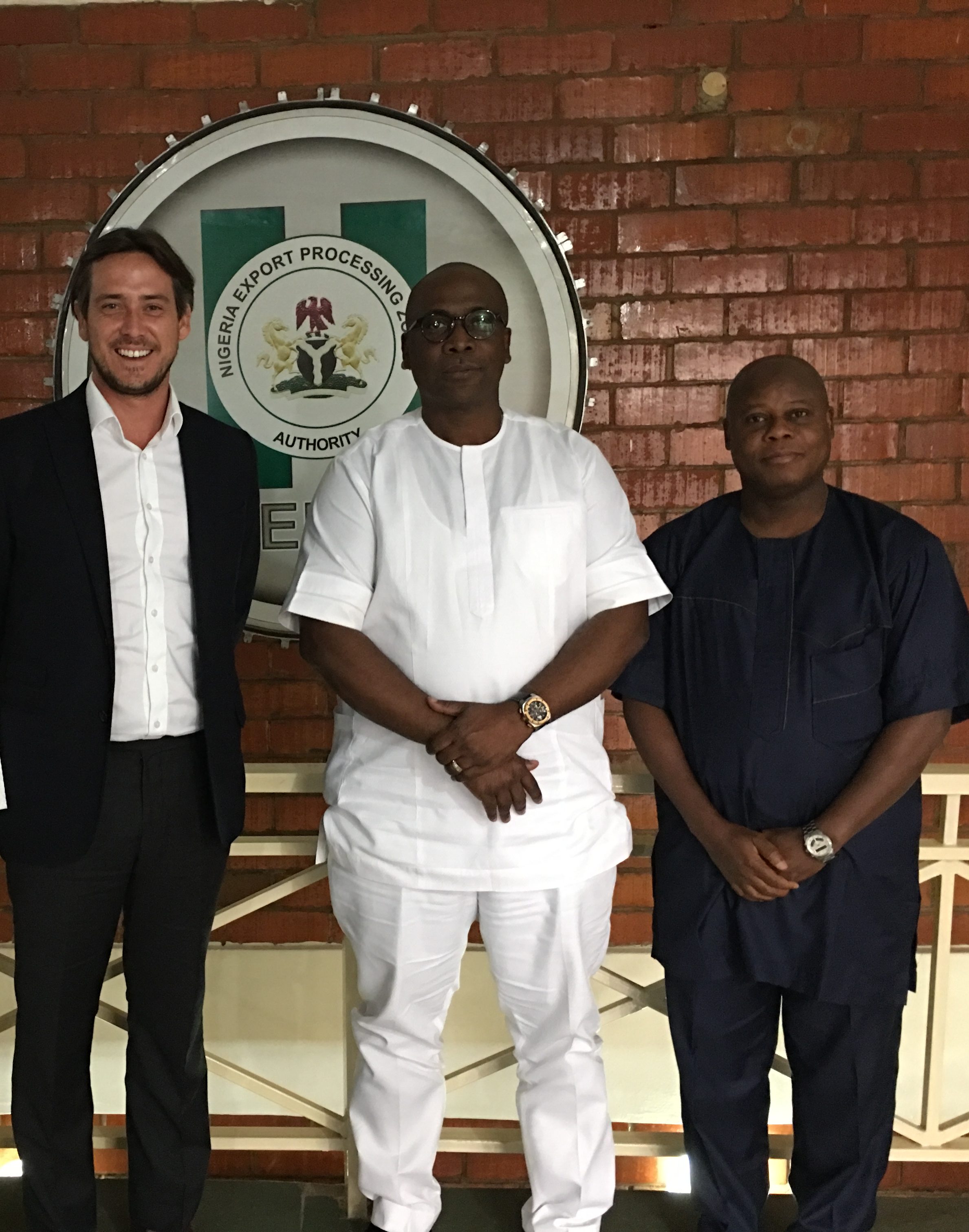
The Nigeria Export Processing Zones Authority (NEPZA) has granted license to Nigeria’s largest and most ambitious Free Trade Zone and Mega Port project – the Maritime Africa Economic City otherwise known as the Badagry Free Zone.
The license was handed over to the Project Director of the Zone, Mr. Patrick Bird by the Managing Director of NEPZA, Mr. Gbenga Kuye in Abuja on Thursday.
“Today marks a tremendous milestone in the development of the Badagry project. With NEPZA, we intend to develop Maritime Africa Economic City into one of the most successful special economic zones in all of Africa,” Mr. Bird said shortly after receiving the NEPZA license.
“The benefits of having this approval are enormous for our clients and despite the current downturn in the economy, we are still fielding a lot of interests from domestic and foreign companies wanting to set up in Badagry.
“We thank NEPZA for their continued support. This is going to be a great partnership to the benefit of Nigeria,” he said.
Mr. Bird said some of the benefits of the new Free Trade Zone include various tax advantages, 100% repatriation of profits and dividends, immigration incentives, round the clock operations, and fast track cargo clearance procedures.
The Maritime Africa Economic City will be developed on 1,100 hectares of land with over 6 kilometres of quay wall, including a container terminal, roll-on-roll-off (RORO) terminal, general cargo terminals, oil service centre and refined products import terminals.
It will also include a power plant, oil refinery, industrial park, warehousing and inland container depot functions as well.
The Zone is connected to Lagos by the Lagos-Badagry Expressway, which is currently being upgraded and expanded by the Lagos State Government as well as the Porto Novo Creek, allowing for the barging of cargo between the existing port system of Lagos and the new facility.
A rail line will also be developed in the future to connect the new Free Trade Zone for even more seamless transit of goods.
In October, Lagos State Governor, Mr. Akinwunmi Ambode said the Badagry Free Zone and Mega Port project would be a major turning point that would go a long way to bring about global growth to Nigerian waters and by extension the nation’s economy.
The Governor said the project would also complement the emergence of Lagos as the fifth largest economy in Africa.
The Governor, while lauding the investors for staying the course with the project, which is expected to generate hundreds of thousands of direct and indirect jobs upon completion, pledged his government’s commitment to ensuring the interests of the host communities alongside a sustainable regeneration and urban renewal of the area.
The Federal Government approved the construction of the proposed Mega Port and Free Zone at the Federal Executive Council meeting of August 3, 2016.
Also, speaking in support of the project, Minister of Transportation, Mr. Rotimi Amaechi said the project will boost Foreign Direct Investment in the country.
The Minister of Information, Alhaji Lai Mohammed said the approval shows that Nigeria is still a preferred investment destination in Africa despite the challenges it is currently facing.
Also speaking on the project, Minister of Power, Works and Housing, Mr. Babatunde Fashola, while thanking President Muhammadu Buhari for granting the approval, said, “There are bigger vessels now being built across the world that require larger depths and drafts to berth. Now some of our competitors on the continent like Djibouti are building bigger ports, so if we don’t build this port we risk becoming uncompetitive and we risk a threat to our maritime hub status in the sense that we may become a transshipment port instead of a port of original destination.”
The Maritime Africa Economic City is being developed by a consortium of top local and international companies.
Copyright Ships & Ports Ltd. Permission to use quotations from this article is granted subject to appropriate credit given to www.shipsandports.com.ng as the source.
